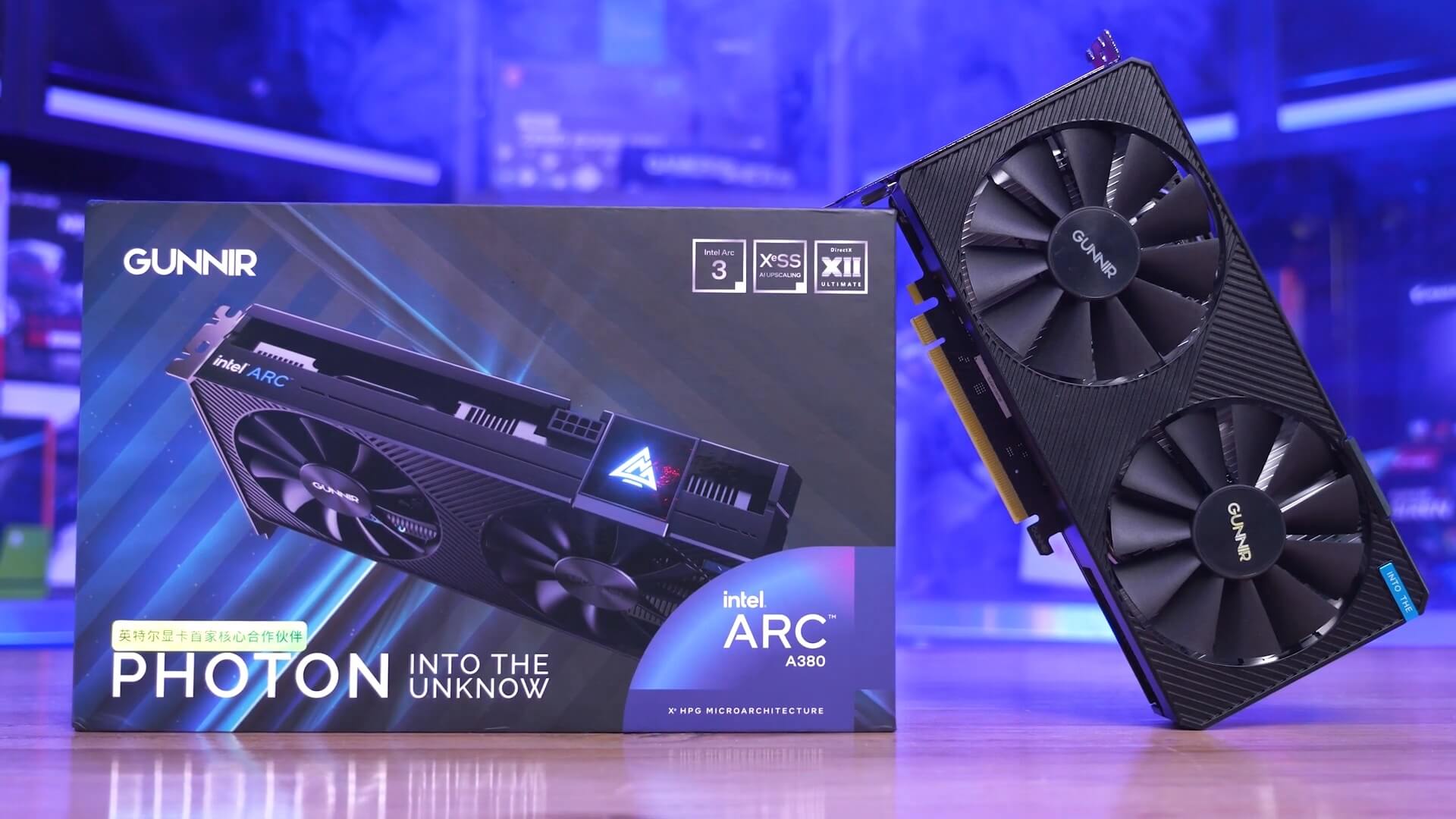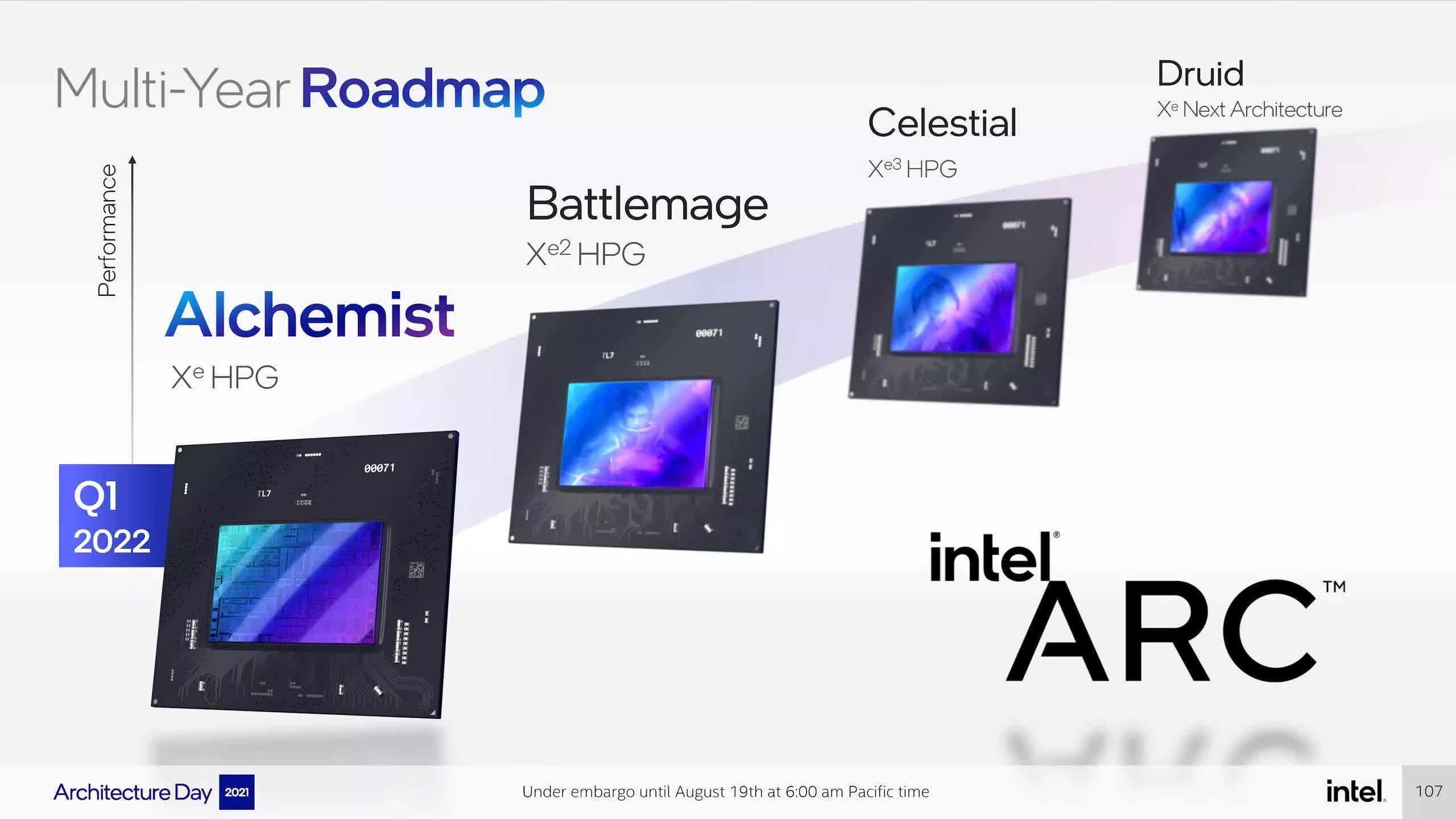In context: We all know that Intel's Arc Alchemist launch has not been as successful as the company hoped---and that's putting it mildly. The vast number of problems surrounding the discrete graphics cards have led some to believe Intel might cut its losses and abandon the entire project. Chipzilla insists that's not going to happen, and it's already working on the next generation of cards: Battlemage and Celestial.
Underwhelming performance, problems with DirectX11, and the need to enable Resizable Bar have been some of the issues reviewers have encountered with the only Arc desktop card released so far, the Arc 3 A380. Buggy drivers have proved to be the worst element, with Intel engineers spotting 43 issues alone just by watching a review of the card by Gamers Nexus.
Then there's the more powerful Arc A7 series that's supposedly as good as (and cheaper than) the RTX 3060, according to Intel, anyway. The company said they would arrive in summer, but the cards still aren't here with around three weeks of the season left.
Adding to Intel's worries are reports of some dealers, potential distributors, and manufacturers in the European area showing little to no interest in Arc cards. There were also claims that Intel's RMAs and returns are significantly worse than those of its competitors, and that one big board partner has completely stopped production of Arc due to quality concerns, which certainly sounds bad.
With Intel selling off or closing previous enterprises, including its NAND, aerial drone, and Optane businesses, some analysts believe its Accelerated Computing Systems and Graphics Group (AXG) could be next to go. Such a scenario is not that hard to imagine, given the $507 million loss AXG recorded in the last quarter.
But Intel's Tom Petersen says not only is Arc sticking around but work on the brand's future cards is also well underway. "We're not going anywhere on our discrete business. And our discrete business is the basic technology development that goes both into the data center and integrated GPUs. I feel like there's a lot of FUD (fear, uncertainty, and doubt) out there. I'd just like to be clear: we're not going anywhere," he told PC Gamer.
"The thing I happen to believe---Pat, and I, and Roger, and Lisa, and Ryan, everybody is aligned on the idea---that graphics is a critical technology to the client, is a critical technology to the data center, and we want to start competing in the mainstream area where our competitors are making a ton of money. So all three of those things are critically important for Intel."
Following Alchemist, Intel's next generation in the seemingly D&D-inspired Arc cards is Battlemage. Those are supposed to arrive in 2023 - 2024. Celestial is next, with a very vague 2024+ release, then Druid, which has no timeline. Petersen said most of the ASIC team is working on Battlemage, with a small portion on Celestial and an even smaller number still on Alchemist.
Petersen claims that later generations of powerful Arc cards will be competing with high-end offerings from Nvidia and AMD. Right now, it's concentrating on the more widespread lower-end. "Our plan is to start here. And then we add on top and then we add on top. And it's not a really hard strategy to understand because we're starting with the volume segment of the market, and then we'll grow into more high-performance segments over time."

